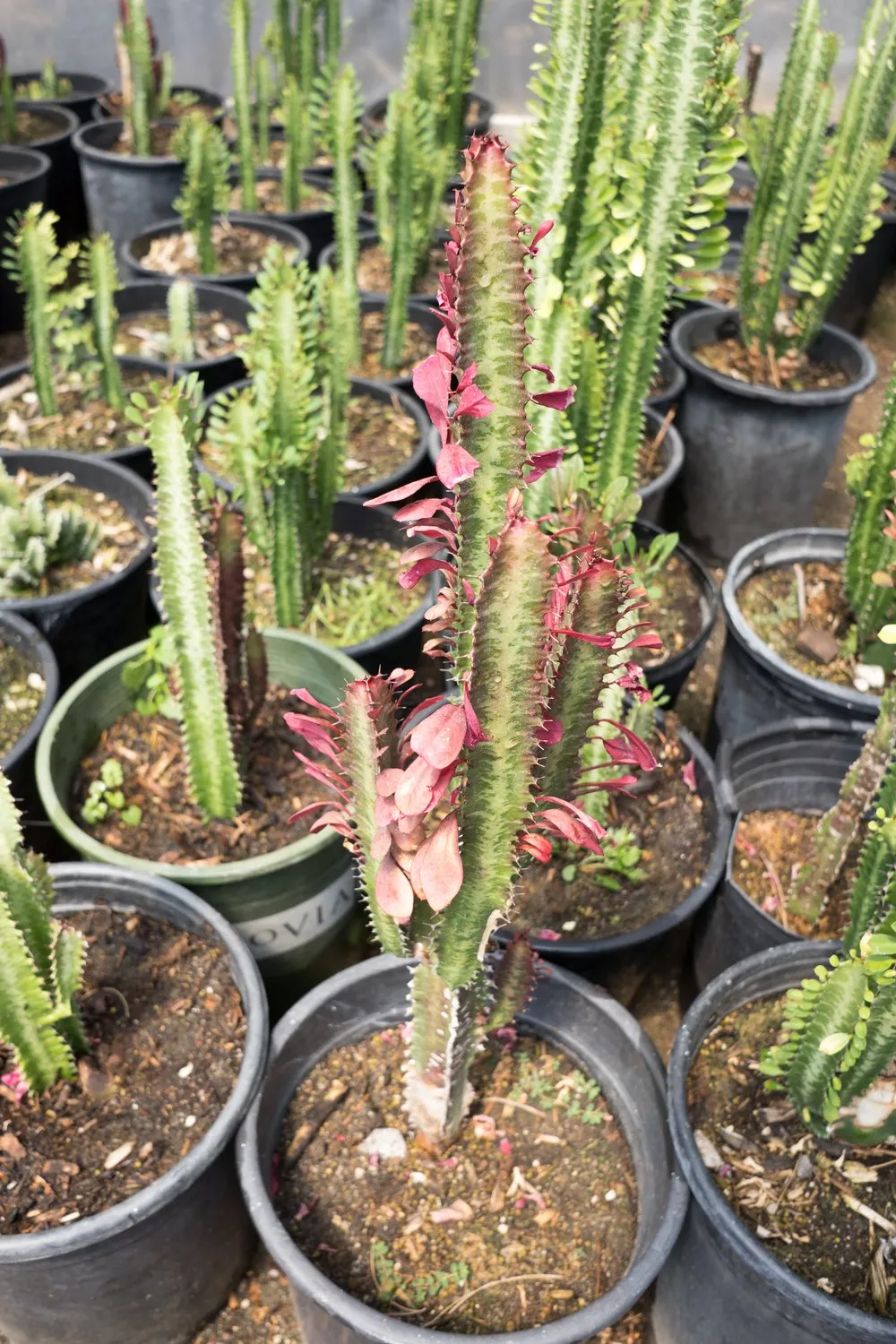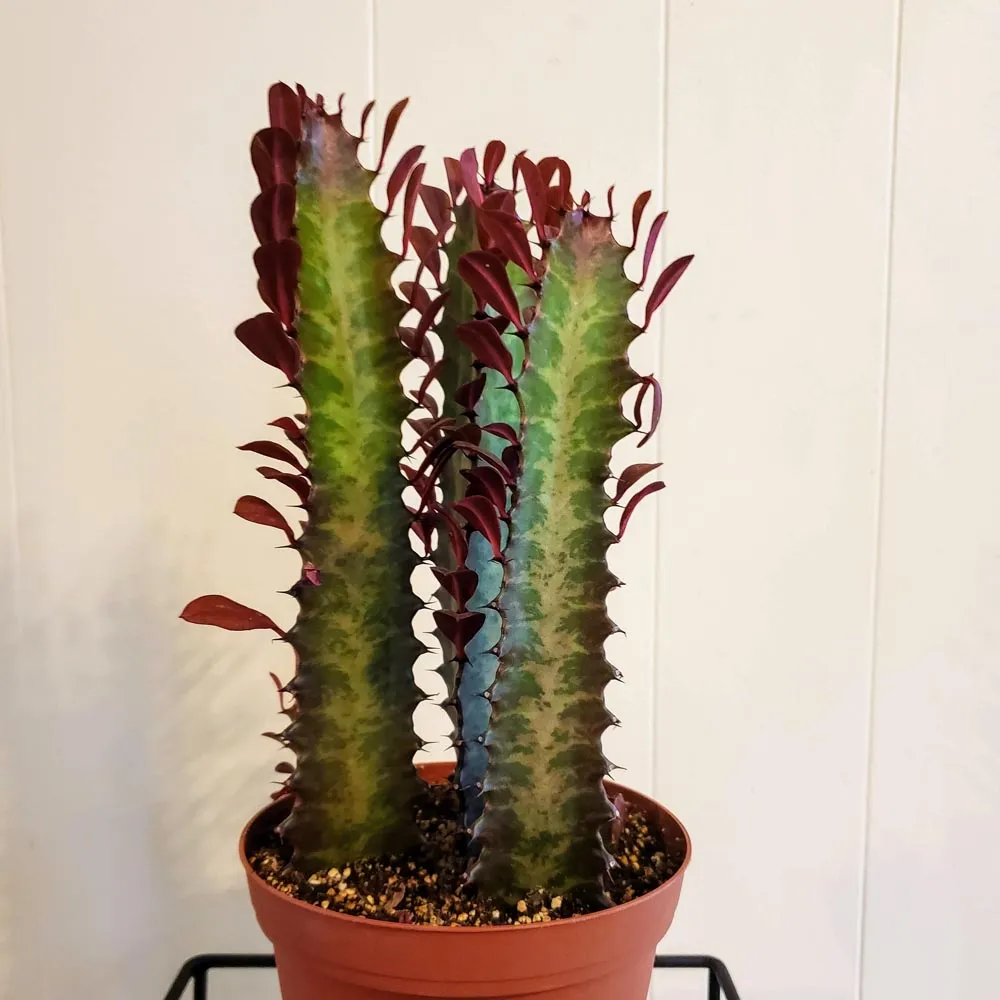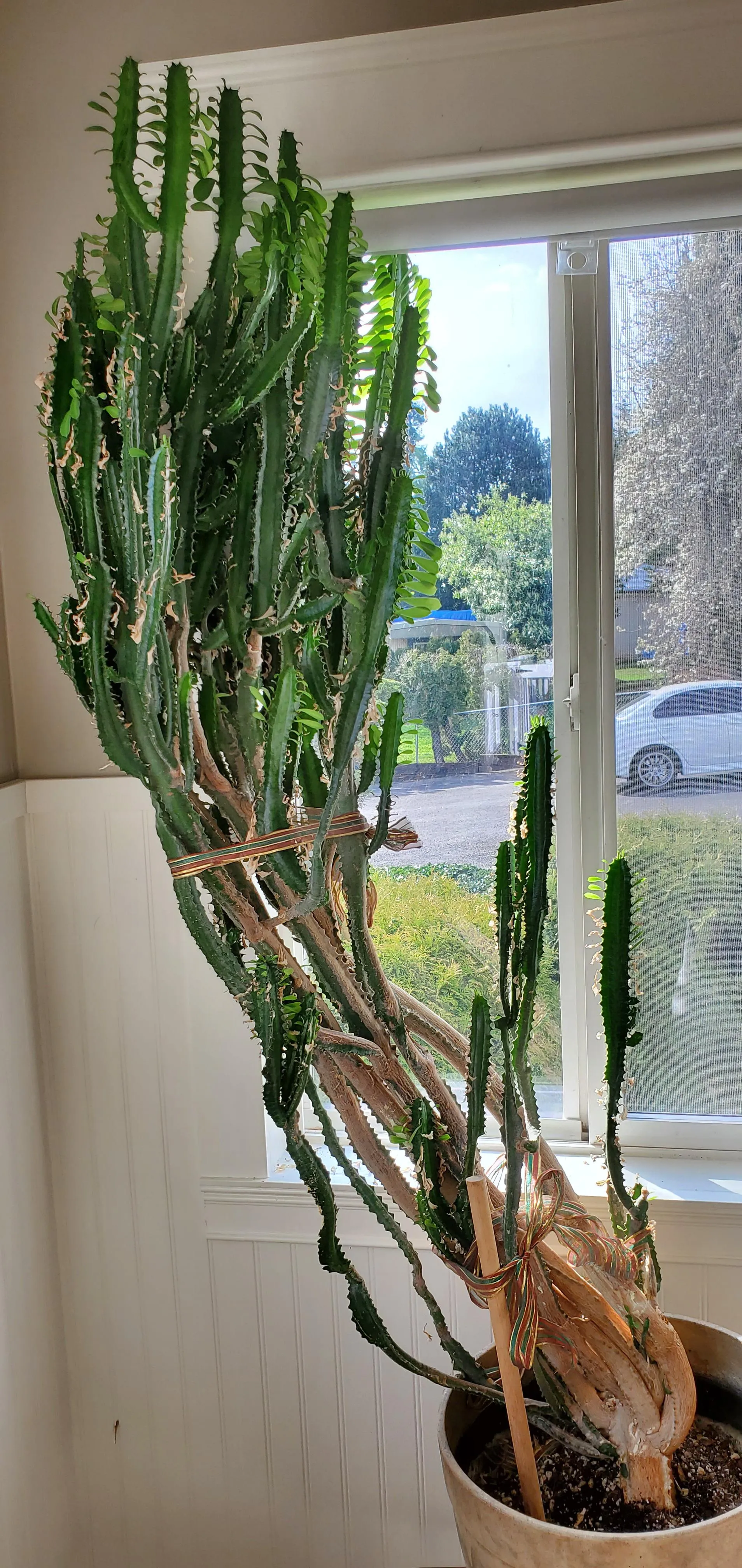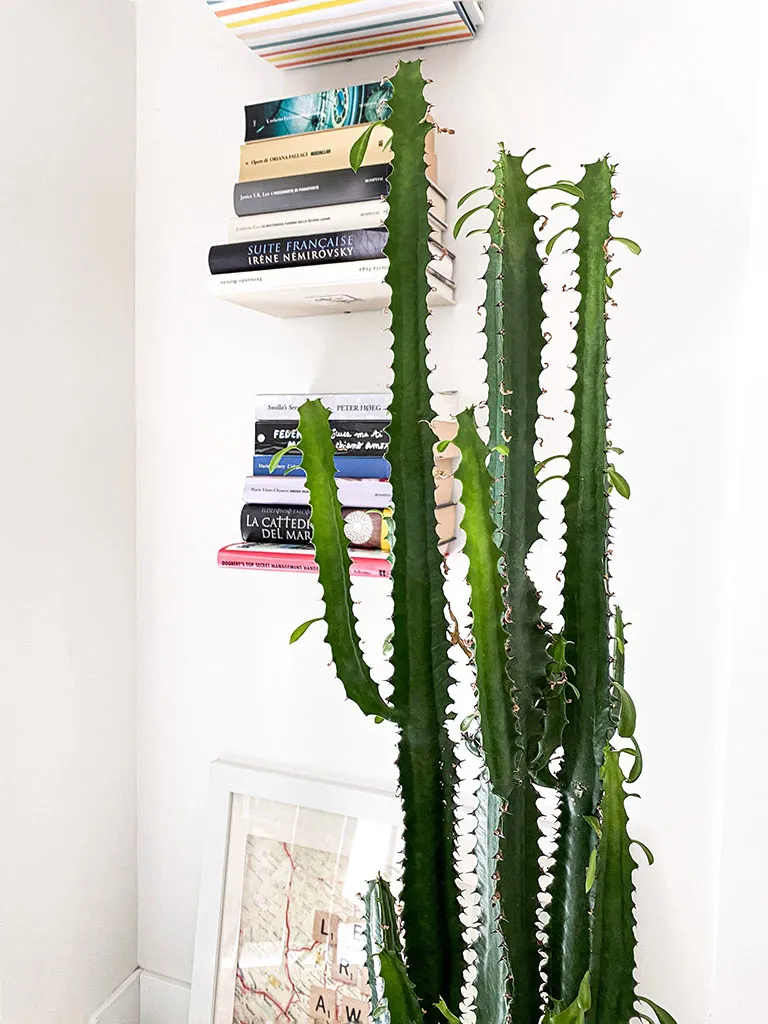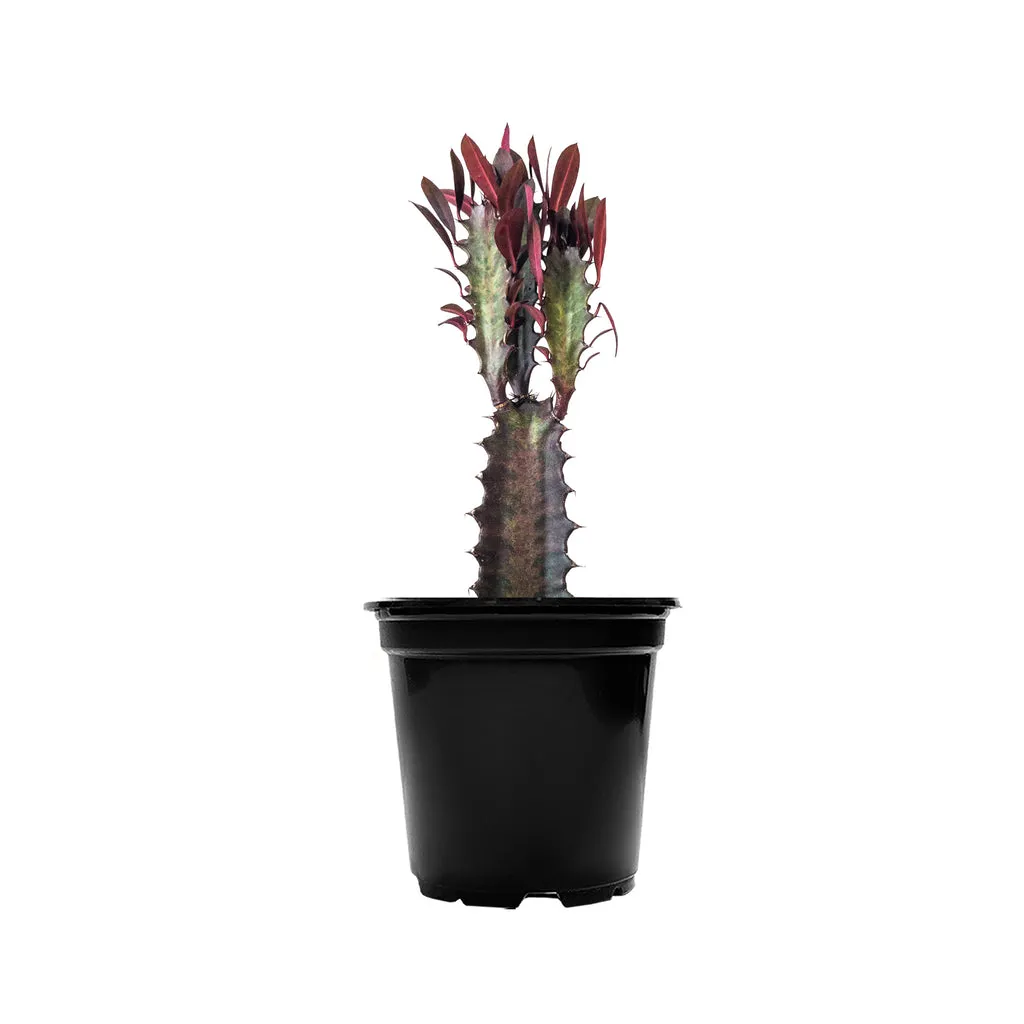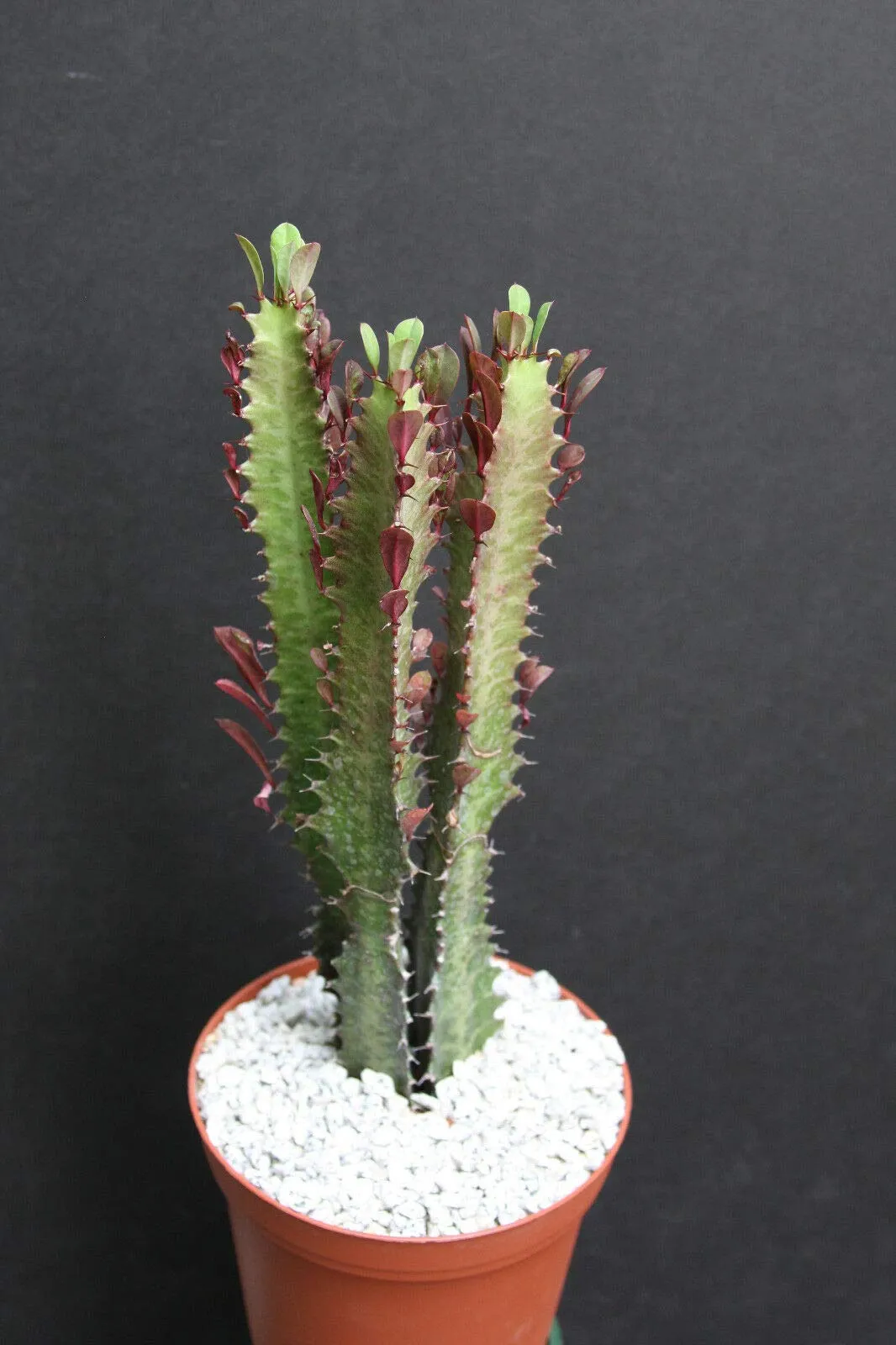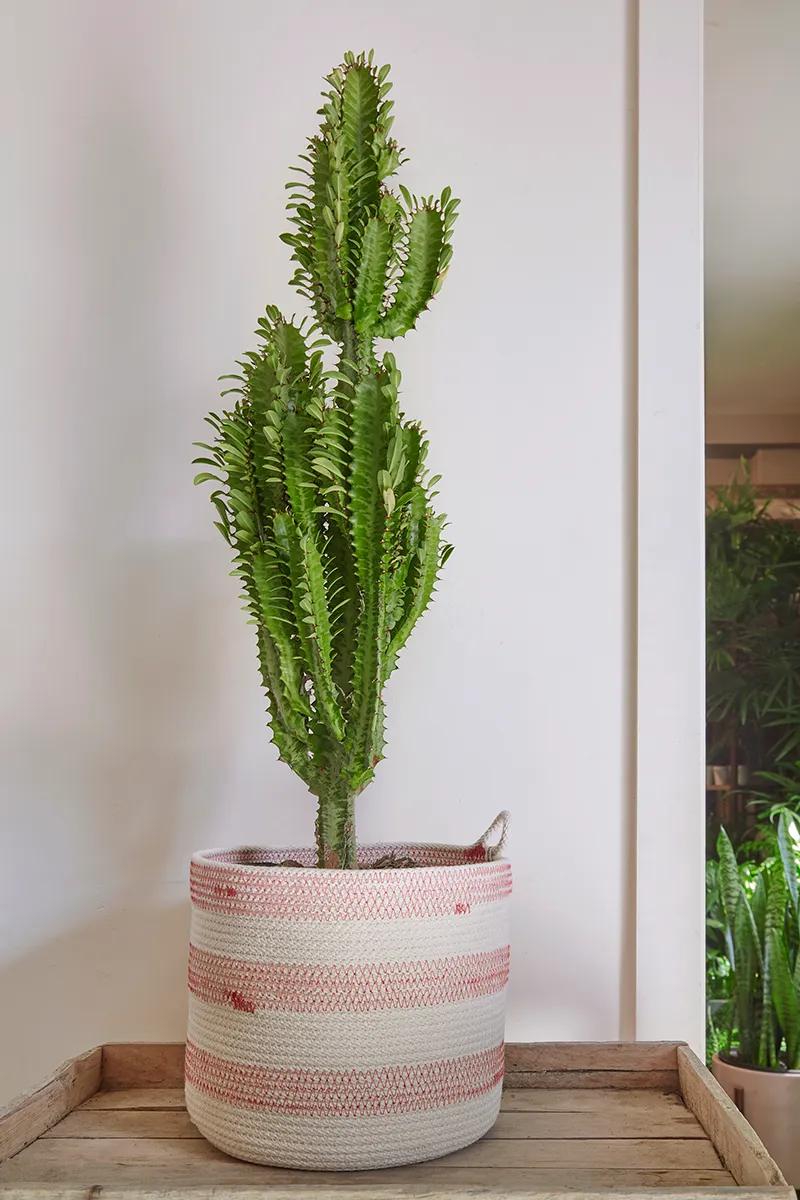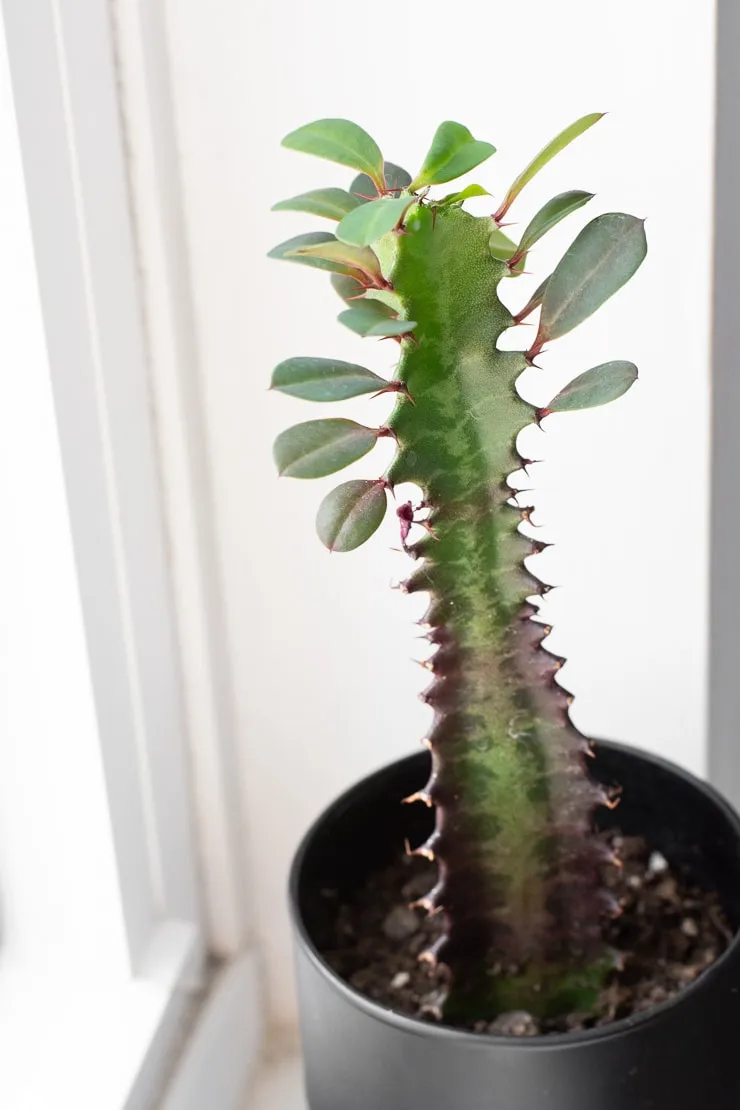African Milk Tree: A Stunning Houseplant
Houseplants are a great way to add life and color to any room in your home. They are not only visually appealing, but they also offer a range of benefits such as purifying the air and reducing stress levels. One such houseplant that has gained popularity in recent years is the African Milk Tree.
What is an African Milk Tree?
The African Milk Tree, also known as Euphorbia trigona, is a succulent plant that belongs to the Euphorbia family. It is native to Africa, specifically to the countries of Angola and Namibia. The plant gets its name from the milky sap that it produces when the stem is cut or broken.
Appearance
The African Milk Tree is a tall, columnar plant that can grow up to 6 feet in height. It has multiple branches that grow vertically and are covered in small, thorny leaves. The plant's stem is green in color and has a triangular shape, which is why it is also called the "triangular spurge." The plant's flowers are small and inconspicuous, and they bloom in the summer months.
Care
The African Milk Tree is a low-maintenance plant that is easy to care for. Here are some tips to help you keep your plant healthy:
Light
The African Milk Tree thrives in bright, indirect sunlight. It is best to place the plant near a window that receives plenty of light, but avoid direct sunlight as it can scorch the leaves.
Watering
The African Milk Tree is a drought-tolerant plant and does not require frequent watering. Water the plant only when the soil is completely dry, and be sure to use well-draining soil to prevent waterlogging.
Soil
The African Milk Tree prefers well-draining soil that is rich in nutrients. You can use a cactus or succulent mix to provide the plant with the right growing conditions.
Temperature
The African Milk Tree prefers warm temperatures and does not tolerate cold weather well. Keep the plant in a room with temperatures between 60°F and 85°F.
Fertilizer
The African Milk Tree does not require frequent fertilization, but you can use a balanced, water-soluble fertilizer during the growing season to promote healthy growth.
Benefits
The African Milk Tree offers a range of benefits that make it a great addition to any home:
Air Purification
Like other houseplants, the African Milk Tree helps purify the air by removing toxins and pollutants. It absorbs harmful chemicals such as benzene and formaldehyde, which are commonly found in household products and materials.
Aesthetic Value
The African Milk Tree is a stunning plant that adds a touch of elegance and sophistication to any room. Its unique shape and color make it a great conversation starter and a focal point in any space.
Stress Reduction
Studies have shown that houseplants can help reduce stress levels and promote relaxation. The African Milk Tree, with its soothing green color and calming presence, can be a great addition to your home if you're looking for a way to de-stress and unwind.
Potential Risks
While the African Milk Tree is generally safe to keep as a houseplant, it does produce a milky sap that can cause skin irritation and other health issues. Here are some potential risks to keep in mind:
Skin Irritation
The milky sap produced by the African Milk Tree can cause skin irritation and allergic reactions. If you come into contact with the sap, wash the affected area with soap and water and avoid touching your face or eyes.
Toxicity
The African Milk Tree is toxic if ingested, and its sap can cause nausea, vomiting, and diarrhea if consumed. Keep the plant out of reach of children and pets, and avoid touching your mouth or eyes after handling the plant.
Conclusion
The African Milk Tree is a beautiful and easy-to-care-for houseplant that offers a range of benefits. It is a great addition to any home and can help purify the air, reduce stress levels, and add aesthetic value to your space. While it does produce a milky sap that can be harmful if ingested or touched, taking proper precautions can help you enjoy this stunning plant without any issues.
Frequently asked questions about African milk tree wallpapers
Q: What is an African milk tree?
A: African milk tree (Euphorbia trigona) is a succulent plant native to Central and West Africa. It is also known as the cathedral cactus or friendship cactus, although it is not a true cactus. It is a popular houseplant due to its unique shape and easy care.
Q: Can I download African milk tree pictures for free on your website?
A: Yes, you can download African milk tree pictures for free on our website.
Q: How many African milk tree pictures do you have on your website?
A: We have 45 African milk tree pictures on our website.
Q: In what category can I find African milk tree pictures on your website?
A: African milk tree pictures can be found in the "Houseplants" category on our website.
Q: In what file types are African milk tree pictures available for download?
A: African milk tree pictures are available for download in .jpg, .png, and .webp file types.
Q: Can I choose different sizes for African milk tree pictures?
A: Yes, you can choose different sizes (width and height) for African milk tree pictures.
Q: Is there a limit to how many African milk tree pictures I can download?
A: No, there is no limit to how many African milk tree pictures you can download.
Q: Do I need to create an account to download African milk tree pictures on your website?
A: No, you do not need to create an account to download African milk tree pictures on our website.
Q: How does your website handle mobile devices when it comes to downloading African milk tree pictures?
A: Our website automatically detects the visitor's mobile screen size and chooses the right size for the visitor.
Q: Can I use African milk tree pictures downloaded from your website for commercial purposes?
A: We do not own the rights to the African milk tree pictures on our website, so we cannot grant permission for commercial use. It is your responsibility to ensure that you have the necessary permissions for any commercial use of the pictures.







